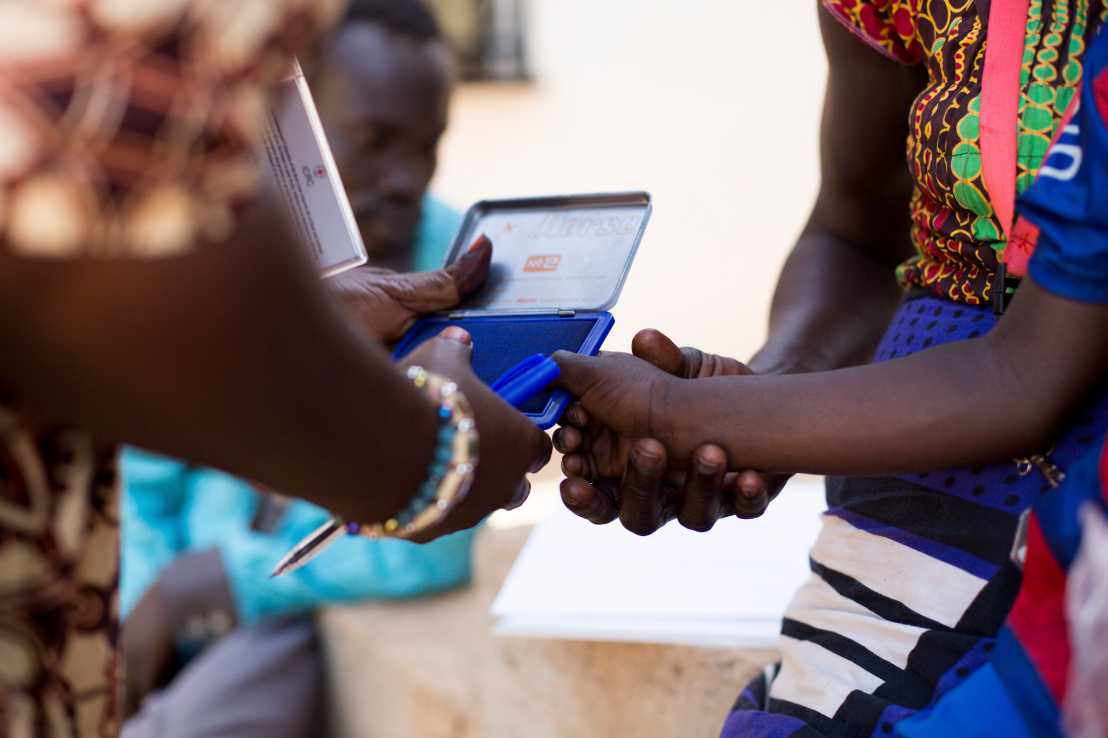ETH Zurich, EPFL, and the ICRC leverage science and technology to address humanitarian challenges
ETH Zurich, EPFL, and the ICRC are launching the Engineering Humanitarian Action partnership to harness technology for the benefit of humanitarian action. We are pleased to announce that six research projects have been awarded funding to address pressing humanitarian challenges.
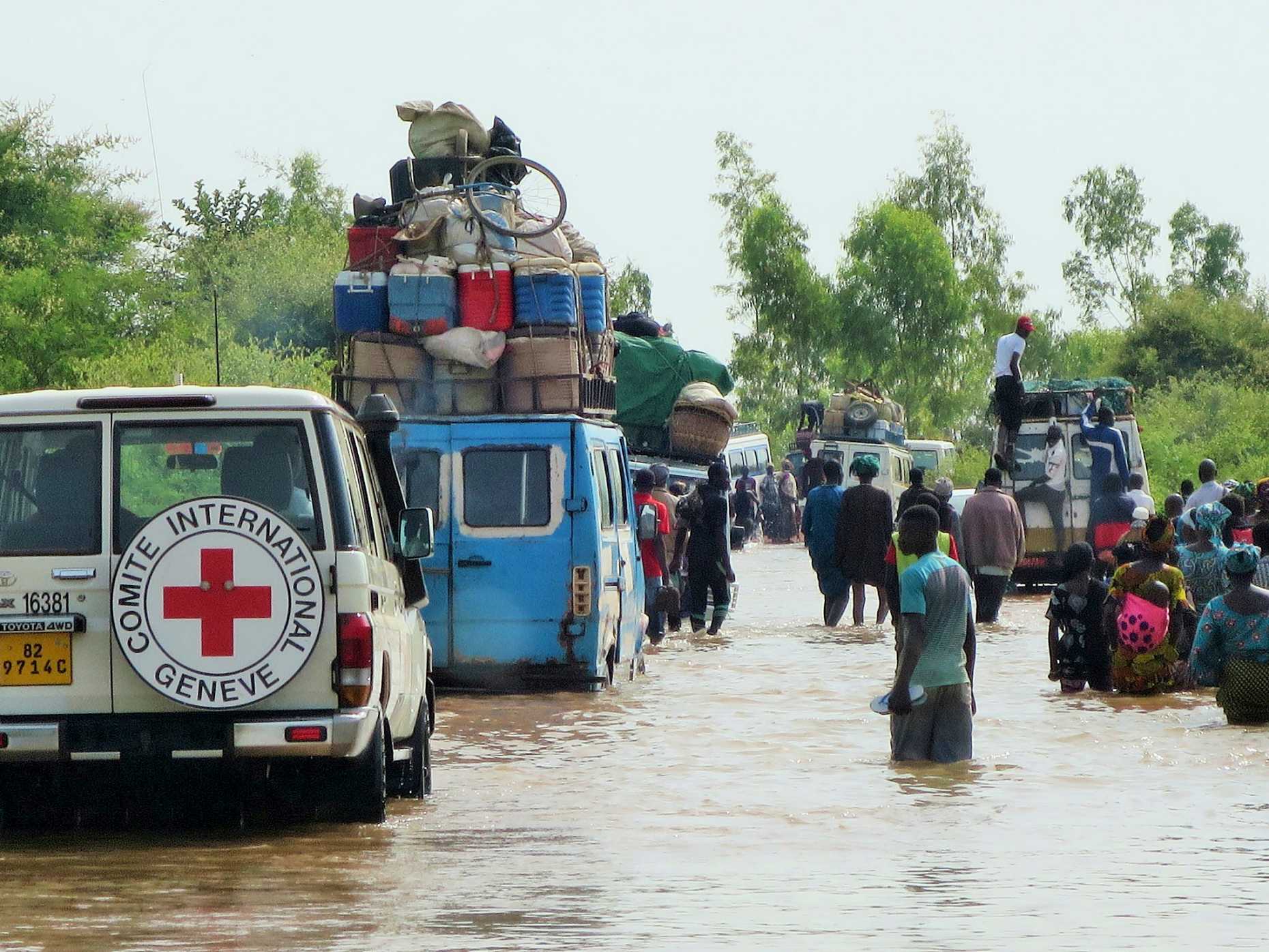
Humanitarian actors in general and the external pageInternational Committee of the Red Cross (ICRC)call_made, in particular, are facing major challenges. In 2019, an estimated 216 million people needed humanitarian assistance in 69 countries [1]. Intensifying conflicts, the consequences of climate change, and the spread of infectious diseases are threatening vulnerable populations. Increasing digitisation presents new challenges for humanitarian actors in terms of data protection and cybersecurity. Innovative approaches to strengthen humanitarian action are therefore all the more important.
As institutions committed to leveraging research and innovation to address the most pressing challenges of our time, ETH Zurich and external pageEPFLcall_made have formed a collaboration with the ICRC to develop innovative solutions for a greater impact of humanitarian action, the Engineering Humanitarian Action initiative. The partnership will focus on three strategic areas: energy and the environment; data sciences and digital technologies; and personalized health and related technologies.
In September 2020, the three institutions issued a joint call for proposals for Humanitarian Action Challenges. Researchers from both universities were invited to submit independent or joint proposals to support the ICRC in its mission to protect and assist people affected by conflict and armed violence. In Zurich, ETH4D manages the call. At EPFL in Lausanne, it is managed by the external pageHumanitarian Tech Hubcall_made, a joint initiative of the ICRC and EPFL, and hosted at the external pageEssentialTech Centrecall_made.
A committee comprising leadership and faculty of the participating institutions has selected a total of six innovative projects, two of which will be carried out by EPFL researchers, two by ETH researchers, and two as joint projects by researchers from both universities.
Awarded research projects:
Decision-Making for Cost-Effective Medical Supply
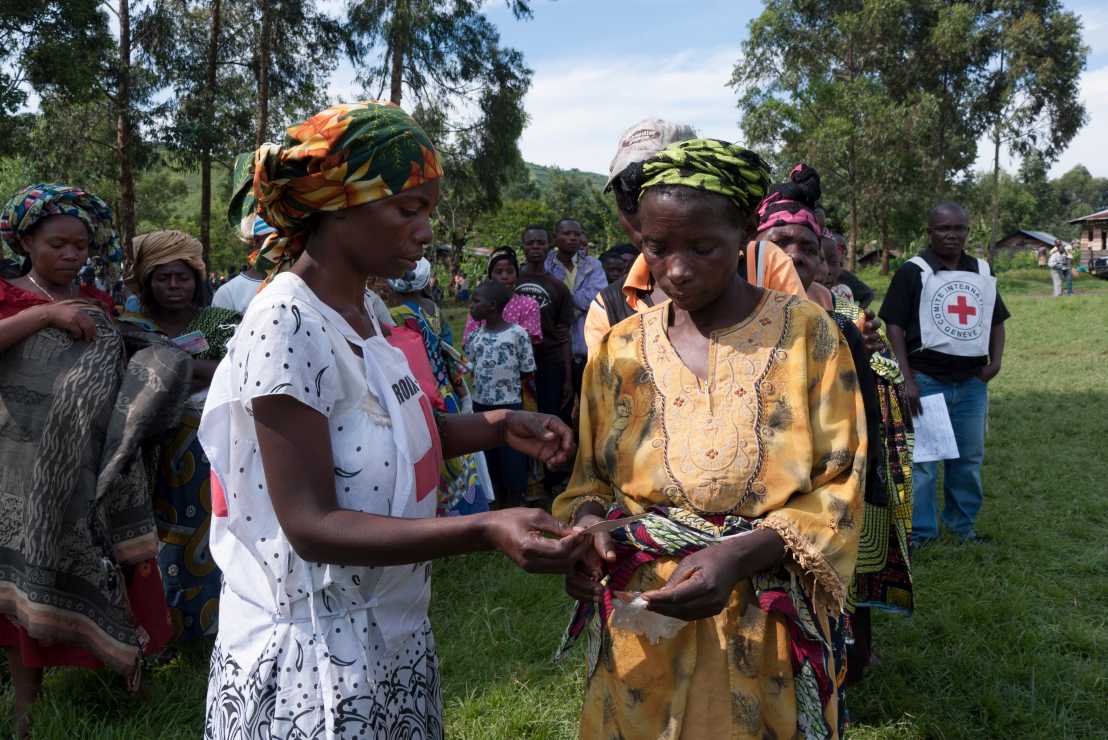
ETHZ PI:
- Prof. Stephan Wagner, Logistics Management, D-MTEC
Partner(s):
- Sophie Gligorijevic, ICRC
The project will support the ICRC to improve the reliable distribution of medical supplies in conflict (war) zones. Based on the analysis of several years of data from ICRC’s medical supply chain as well as a qualitative study of the ICRC’s organisational and process configurations, the project will identify root causes of poor information flow, model potential improvements, and propose implementable solutions. The goal is to avoid waste, improve medication availability for a better quality of service for conflict-affected populations.
The increasing digitisation of humanitarian data flows risks making humanitarian organisations the targets of sophisticated attackers. Approaches are needed for secure computation on cloud environments, accompanied by secure global communication. To tackle this challenge, the project aims to create a mobile device and cloud computation environment for highly sensitive data of humanitarian organisations as well as a communication infrastructure that enables secure and privacy-preserving access to this environment.
Mapping Vulnerable Populations with AI
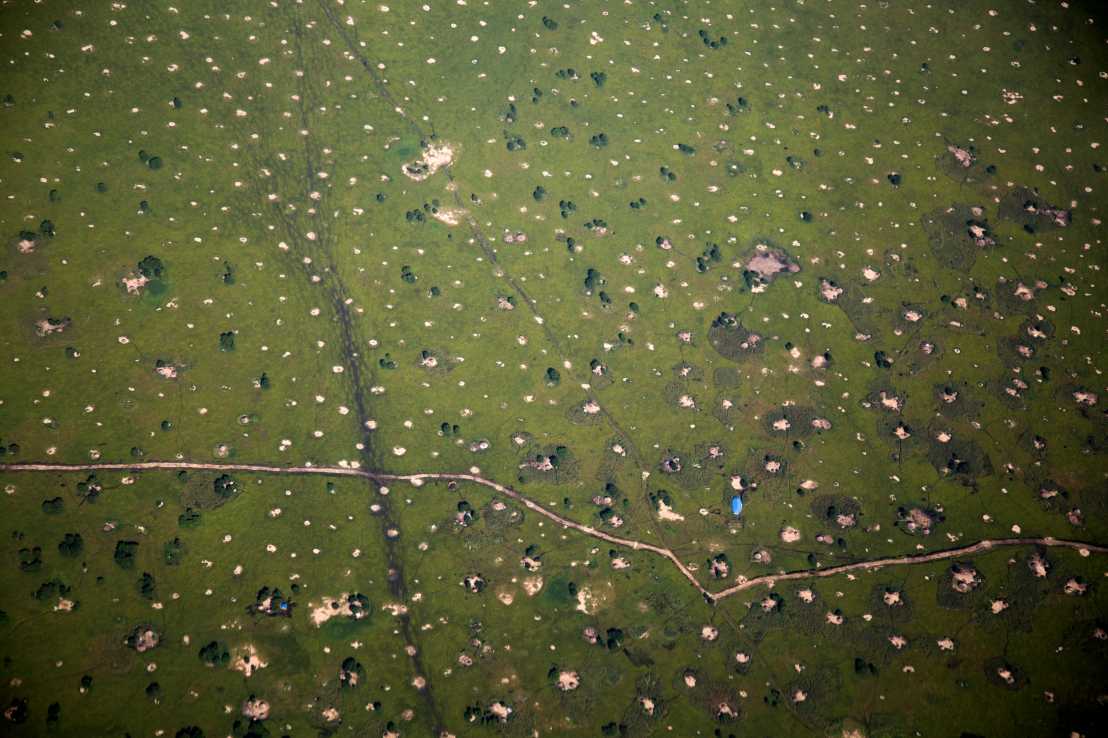
ETHZ PI:
Partner(s):
- external pageProf. Devis Tuiacall_made, external pageEnvironmental Computational Science and Earth Observation Laboratorycall_made, EPFL
- Thao Ton That Whelan, ICRC
- Ferda Ofli, external pageQatar Computing Research Institutecall_made
This project will support the ICRC to precisely map local populations to improve the effective planning of humanitarian action. The goal of this project is to estimate population size and density, as well as related information such as settlement type and population changes. This information will be sourced from satellite images and social media posts, processed with Machine Learning algorithms, and integrated into detailed, spatially resolved population maps. This will help the ICRC to estimate the size of conflict-affected populations and potential returnees and plan its humanitarian response accordingly.
Sustainable Construction in Humanitarian Action
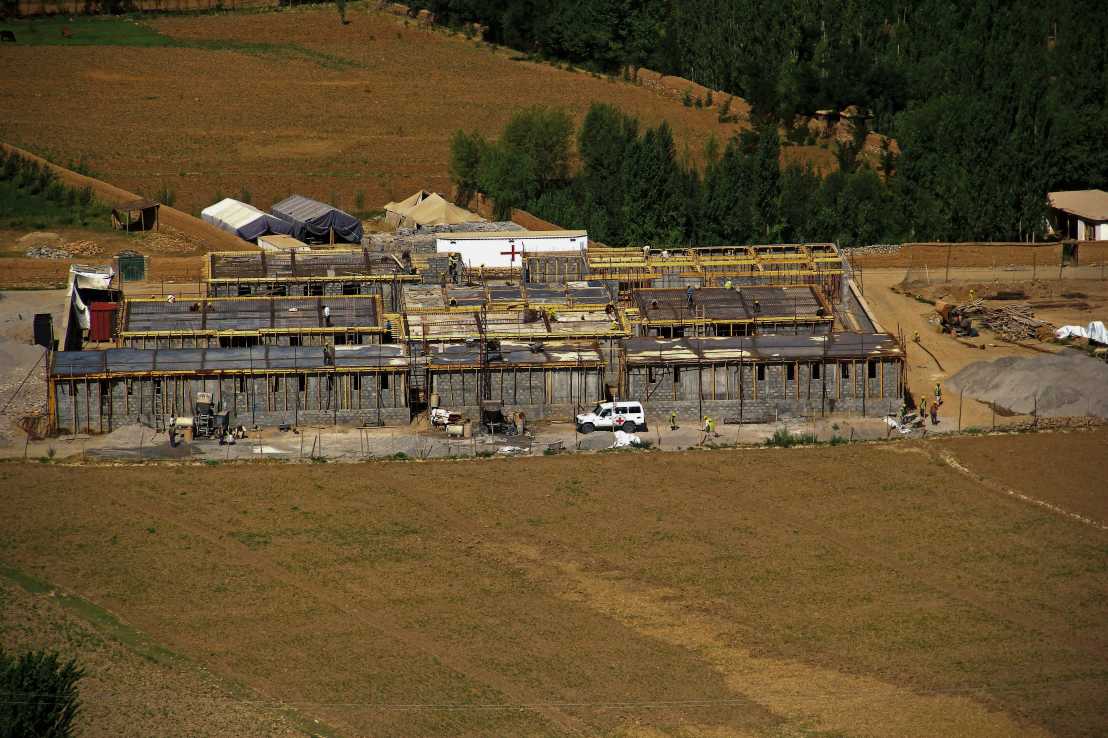
ETHZ PI:
Partner(s):
- external pageDr. André Ullalcall_made, external pageBuilding2050 groupcall_made, EPFL
- Pavlos Tamvakis, ICRC
Existing technologies and systems supporting more sustainable construction are not suited to the conflict-affected, often resource-strapped settings where the ICRC works. This project will adapt and extend existing technologies and systems that promote sustainable construction to provide guidance on how to use environmental impact assessment tools in humanitarian action. Moreover, it will develop a digital platform that supports the sustainable design, operation, and maintenance of humanitarian buildings and infrastructure. The goal of this project is to improve the sustainability of ICRC construction projects, particularly for water and local habitat.
Humanitarian organisations have a responsibility to ensure the efficient delivery of aid as well as fair selection of its recipients. In humanitarian emergencies, determining the identities of aid recipients is a challenging task that could be greatly facilitated through the use of biometrics. Biometrics, particularly in humanitarian emergencies, raise important privacy concerns, including the potential to expose beneficiaries’ personal data. The ICRC has adopted a policy on biometrics which considers these challenges, and highlights areas where further research and development is needed. On the basis of this, this project aims to design a biometric system suitable for deployment in humanitarian settings without endangering their beneficiaries personal information.
Harmful Information Against Humanitarian Organisations
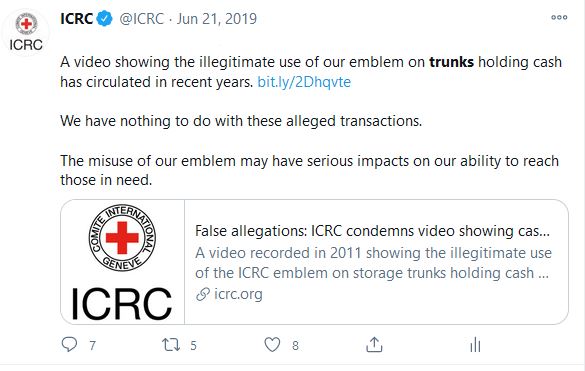
EPFL PI:
- external pageProf. Karl Aberercall_made, external pageLaboratoire de systèmes d’information répartiscall_made
Partner(s):
- Vincent Graf Narbel, ICRC
Disinformation and hateful rhetoric, often called information warfare, are common tools to fuel ethnic and religious tensions and incite violence – including against humanitarian organisations. In 2018, aid workers combatting Ebola (including those at the Red Cross) found themselves to be victims of disinformation campaigns, which led to violence. This project aims to develop technical methods to combat misinformation directed against humanitarian organisations on social media. It aims to uncover how weaponised information impacts humanitarian organisations and to determine what can be learned about the methods employed to carry out these attacks. The overarching goal of this project is help prevent future attacks and preserve humanitarians’ security in the field.
The next call for proposals will open in spring 2021.
[1] Development Initiatives, external pageGlobal humanitarian assistance report 2020call_made, p. 24


